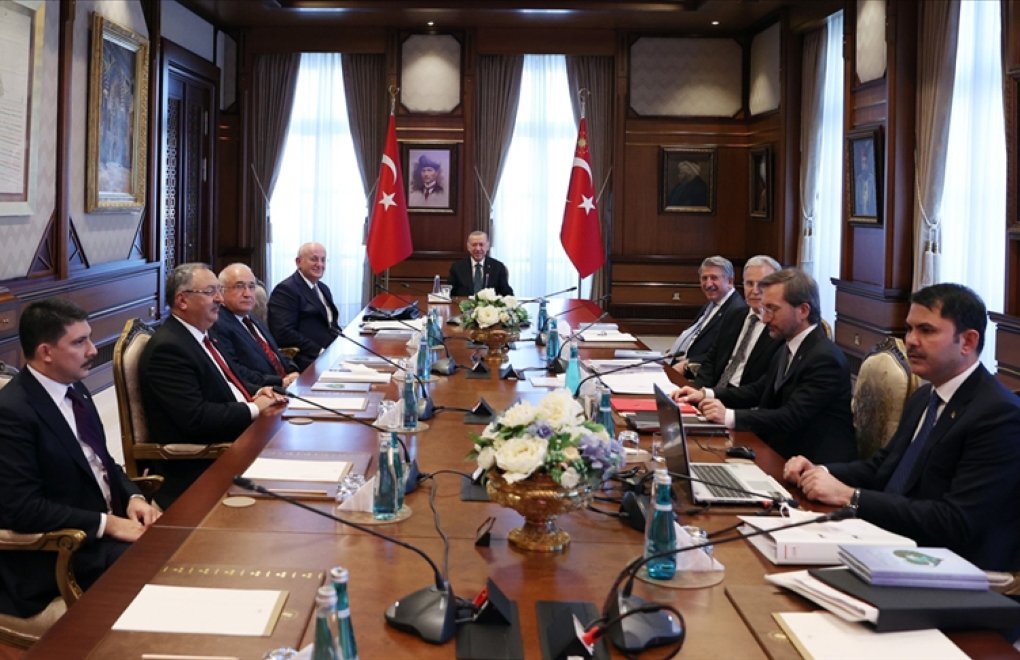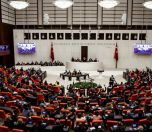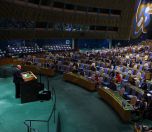* Photo: Anadolu Agency (AA)
Click to read the article in Turkish
President and Justice and Development Party (AKP) Chair Recep Tayyip Erdoğan chaired the "climate change meeting" of the Presidential High Advisory Board in Ankara yesterday (December 2).
In the meeting, which lasted nearly 90 minutes, the members of the High Advisory Board "discussed future developments following Turkey's ratification of the Paris Climate Agreement in October", according to a statement by the Presidency's Directorate of Communications.
The meeting was attended by Board members İsmail Kahraman, Cemil Çiçek, Köksal Toptan, Mehmet Ali Şahin and Minister of Environment, Urbanization and Climate Change Murat Kurum, Presidency's Director of Communications Fahrettin Altun, Presidency's Director of Administrative Affairs Metin Kıratlı and Presidency's Principal Clerk Hasan Doğan.
As reported by the state-run Anadolu Agency (AA), in the meeting, President Erdoğan said that "Turkey would continue to cooperate with the international community on climate change," the statement has revealed. Erdoğan reportedly added that the country would seek to find a "middle way" between its development goals and the "sensitivities of humanity."
The High Advisory Board also discussed Turkey's Green Deal Action Plan, announced within the frame of harmonization with the European Union (EU) Green Deal and Turkey's 2053 net-zero emission target.
The Board emphasized that the fight for climate change requires a radical shift in understanding, "affecting every aspect of life." The board also expressed its views on the Climate Law, which includes policies, targets, and regulations on climate change that officials are currently drafting.
Paris Climate Agreement
On December 12, 2015, parties to the United Nations Framework Convention on Climate Change (UNFCCC) reached an agreement to fight climate change and achieve a sustainable low-carbon future at the UN Climate Change Conference (COP21) in Paris, France.
The Paris Agreement is an agreement within the United Nations Framework Convention on Climate Change (UNFCCC), dealing with greenhouse-gas-emissions mitigation, adaptation, and finance, signed in 2016.
Its goal is to limit global warming to well below 2, preferably to 1.5 degrees Celsius, compared to pre-industrial levels.
To achieve this long-term temperature goal, countries aim to reach global peaking of greenhouse gas emissions as soon as possible to achieve a climate neutral world by mid-century.
As of November 2020, 194 states and the European Union (EU) have signed the Agreement. 187 states and the EU, representing about 79 percent of global greenhouse gas emissions, have ratified or acceded to the Agreement, including China and India, the countries with the 1st and 3rd largest CO2 emissions among UNFCCC members.
Turkey ratified the Agreement on October 6, 2021. (EMK/SD)








